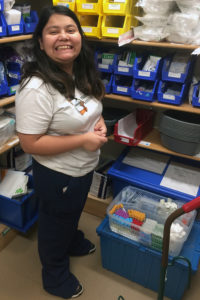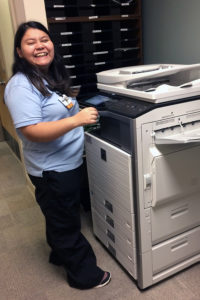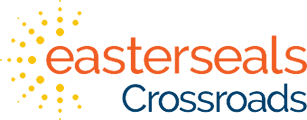Young Adults with Disabilities Gain Meaningful Employment
(post created by Bohlsen Group)
“This is my last free weekend!” Karen Cespedes announced with a wide grin. The 19-year-old had just accepted a job offer in Environmental Services at Community North Hospital after completing a year’s internship there through Project SEARCH.
Karen shares many characteristics with your average teenager. She loves pop music, in particular Korean K-pop. She likes going to the movies and watching Korean soap operas as well as getting outside at the park. She’s excited to find a job where she can enjoy going to work every day, socializing with coworkers and earning her own paycheck.
In that area in particular, Karen needs extra support. Like many young adults with hidden disabilities, she doesn’t have an official diagnosis for the challenges she has faced for many years, which include difficulty with speech and clarity of thoughts.
that area in particular, Karen needs extra support. Like many young adults with hidden disabilities, she doesn’t have an official diagnosis for the challenges she has faced for many years, which include difficulty with speech and clarity of thoughts.
“From the time I was six or seven, I knew I had something wrong with me that my older siblings did not,” she explains. “I felt insecure. I was told I couldn’t do things, and I wanted to prove everyone wrong.”
Growing up, Karen often faced the misconception that she was rude or extremely shy—because her disability was invisible, others couldn’t tell that she wasn’t speaking up because of learning and communication differences. In some cases, she was bullied.
After finishing high school in 2016, Karen was accepted into Project SEARCH at Community North. Project SEARCH enrolls around 15-20 students per year and has a partnership with Lawrence Township School district, where Karen attended school. Easterseals Crossroads holds the local license for Project SEARCH and manages the program at Indianapolis hospitals.
In the program, students begin each day in their classroom, then go on to five hours of work in hospital areas including the cafeteria and environmental services, then finish their day in the classroom again. Over the course of a school year, students complete three 10-week rotations with different departments. During class time, students learn about personal finances, applying for and interviewing to jobs, and other life skills. Easterseals Crossroads staff administer the program, teach the life skills classes, and have case managers that help students adjust to their rotations and contextualize the experience.
In Karen’s case, her case managers were able to help her adjust to her new rotations by converting the job duties into a checklist for her to follow, with both text and images for each step of her shift. Karen often has trouble speaking when she is stressed and can be overwhelmed by her emotions. Her case managers also worked with her on identifying and addressing emotions when she is angry or sad.
After completing the program, Project SEARCH students have the opportunity to interview for jobs at the hospital. If they are not hired like Karen, they are referred to Easterseals Crossroads’ employment services. Approximately 80% of the alumni are placed in a job through one of those avenues.
 In her new role, Karen will be performing critical support activities for hospital operations, including maintaining supply inventories, cleaning phlebotomy kits, and delivering linens. She lives at home with her family and “many, many” cats.
In her new role, Karen will be performing critical support activities for hospital operations, including maintaining supply inventories, cleaning phlebotomy kits, and delivering linens. She lives at home with her family and “many, many” cats.
Karen hopes to see changes in the way that others perceive individuals with disabilities, including stronger support programs through the school system and community awareness-building and education.
When interacting with someone who may have a visible or invisible disability, she advises: “Be patient, be willing to help, don’t stare, and be kind and talk to them.”
“Project SEARCH has helped me gain confidence, and to know more people,” she said.
To learn more about Easterseals Crossroads and Project SEARCH, click here.



